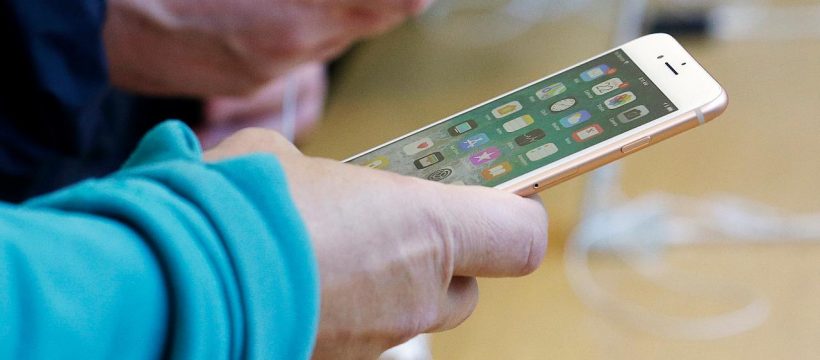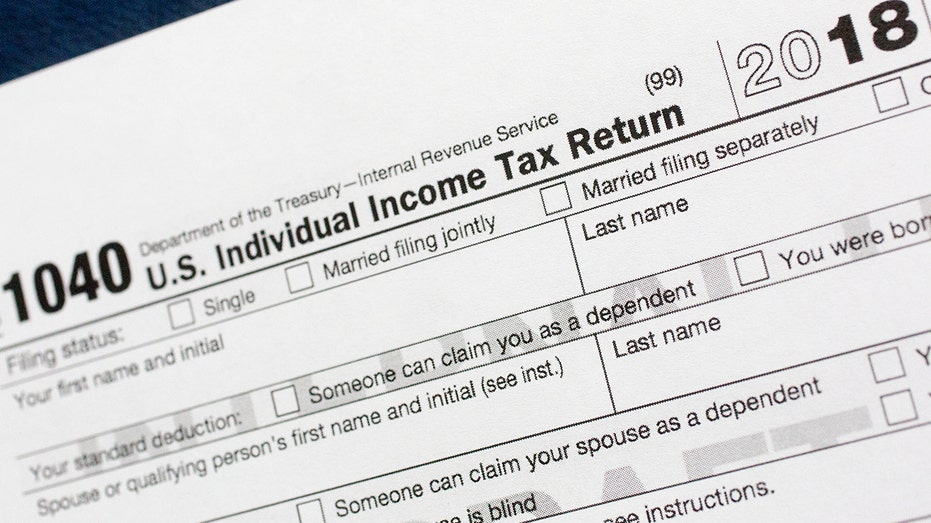Retail app helping influencers target customers more efficiently
RewardStyle President Amber Venz Box on how the company’s app helps consumers shop for items used by social media influencers.
Influence is powerful — but can it really come from a baby?
Continue Reading Below
The parents of top-earning infants on social media certainly think so.
However, not everyone agrees with putting their baby out there in the public eye. While celebrity couple Arie Luyendyk Jr. and Lauren Burnham from the “Bachelor” helped their unborn child, Alessi Ren Luyendyk, amass a verified following of hundreds of thousands while A-listers like George and Amal Clooney have reportedly worked hard to keep their children away from cameras.
Although baby Alessi doesn’t appear to have a business account activated to make money on Instagram like a traditional influencer, the feat of having such a large following has some critics scratching their heads. At less than five months old, Alessi has over 322,000 followers and a blue checkmark that verifies her identity to the public.
Even for adults, getting verified on social media isn’t an open or clear-cut process.
“It’s completely arbitrary about who they’ll verify, who they won’t,” attorney Barry Janay told FOX Business.
According to Janay, it all depends on what is specified in each platform’s terms of service. However, he noted that the law is slow when it comes to regulating media and that current circumstances are like a brave new world.
Influencer pages that showcase users who are younger than the terms of service often note that they are run by the parents, which might provide a loophole big enough to prevent de-platforming underage stars.
Other children – or rather parents – have found lucrative ways to make money on social media while showcasing unique talents or humorous antics.
Ryan Kaji of Ryan ToysReview, the YouTube channel with an eye boggling 22 million subscriber count, made news last year when it was revealed that the seven-year-old boy was the platform’s highest-earning star. According to estimates by Forbes, Ryan raked in $22 million for his toy reviews – a talent he surely crafted since his toddler debut.
His first video, “Kid playing with toys Lego Duplo Number Train,” has over 48 million views.
Ryan’s influence has been substantial enough for the watchdog group Truth in Advertising, which has filed a complaint with the Federal Trade Commission against the popular YouTube page over “sponsored videos that often have the look and feel of organic content.”
Despite the “deceptive native advertising” accusation and YouTube’s minimum age requirement of 13 under Google, Ryan’s likeness has been a golden one for Nickelodeon. The media mogul, who hasn’t even reached the age of 10, stars in his own show “Ryan’s Mystery Playdate” on Nick Jr. and has an international merchandise deal with the network, according to the Hollywood Reporter.
Toy reviews aren’t the only big moneymakers for kiddos. The beauty world is a multibillion-dollar industry that’s willing to pay popular online personalities for promotion too.
Jayde Kamille, who went viral over a “salon talk” video at age 1 in 2017 and received a tour of Sea World after amassing more than 19 million views, has gone on to have a dedicated Instagram and YouTube pages that have hundreds of thousands of fans who watch her beauty reviews.
Both platforms have contact methods listed for booking Jayde, who is now four-years old, for brand partnerships. These collaborations often get posted online as hair or skin care tutorials featuring Jayde’s commentary.
Just like Ryan, Jayde has a dedicated and engaged audience that support the unorthodox career path. The preschooler made her official TV debut alongside comedian Tiffany Haddish in ABC’s reboot of “Kids Say the Darndest Things.”
For the parents of twins, having double doesn’t mean trouble in the influencer sphere. In a report by CBS News, the Instagram famous duo Taytum and Oakley Fisher could “earn upwards of $200,000 per month, with money coming in from brand deals and advertising revenue” thanks to their generous following. On Instagram alone, the pair have over 3.1 million followers.
Similarly, the “McClure Twins,” Ava and Alexis have over 1.9 million followers on Instagram and have been recognized as top influencers by Forbes and even have a dedicated Digital Star page that details how the pair is “able to command an average of $10,000 per sponsorship or partnership.”
Whether shouldering the life of an influencer onto an infant or child can be qualified as abuse, Janay said it really depends on what goes on inside the home.
“There is a potential labor law issue where parents might be subjecting their kids into forced labor and give them limited civil rights compared to adults because they are not emancipated unless they get a court order,” Janay explained hypothetically regarding children who may not like the lifestyle and the imbalanced power dynamic.
“Whether forcing them to work and doing a product review… You know, kids say no. I tell my daughter to brush her teeth, she says no, but she’s going to brush her teeth. I’m going to force her to brush her teeth,” Janay said as a reasonable example for making an infant or child do something they don’t want to do.
However, forcing an infant or child to participate in YouTube channel that an adult signed up for is completely separate instance that has legal ramifications circling around it.
“The parent, as a custodial guardian, they can lose that right if it’s deemed [as] abuse,” Janay said simply for anyone who uses harsh means to mold their offspring into a star.
MORE ON FOXBUSINESS.COM …
When it comes to contract law with minors, Janay explained that businesses can enforce signed agreements on anyone under the age of 18. They can, however, take it up with the parents who signed a contract for their child.
Conversely, Janay cited a 1983 court case that involved actress Brooke Shields suing fashion photographer Garry Gross for photographing her nude when she was 10-years-old and distributing those images to Playboy Press for publication. The provocative modeling job was signed off by Shields’ mother and ultimately in a four-to-three decision, the Court of Appeals said the 17-year-old actress could not break a contract signed by her mother in 1975.
The ruling allowed for the continued distribution of the photos so long as they were not published in a pornographic outlet – which is a stark contrast to what society would deem as appropriate in 2019.
GET FOX BUSINESS ON THE GO BY CLICKING HERE
Outside of the many contract, privacy and consent questions that come with a young person’s digital stardom, compensation is not clear.
In select states, the entertainment industry requires compliance with the Coogan Law, a piece of legislation enacted in 1939 to protect child stars after actor Jackie Coogan sued his parents for squandering his wages. The law requires 15 percent of a child’s earning to be stashed away in a specialized trust fund. There is no current extension of this law for young social media influencers.
FILE- This July 24, 2018, file photo shows a portion of the 1040 U.S. Individual Income Tax Return form for 2018. (AP Photo/Mark Lennihan, File) (AP) Additionally, being under the age of 18 doesn’t mean Uncle Sam won’t reach for his cut. According to Turbo Tax, “All dependent children who earn more than $12,000 of income in 2018 must file a personal income tax return and might owe tax to the IRS. Earned income only applies to wages and salaries your child receives as a result of providing services to an employer, even if only through a part-time job.” CLICK HERE TO READ MORE ON FOX BUSINESS Money aside, critics of baby and kid influencers are concerned with the psychological and physical dangers that come with being thrust into the spotlight. From having their moves documented constantly to enduring meet-and-greet events with strangers after the unfortunate shooting of former “Voice” star Christina Grimmie, there are numerous safety considerations the parents of influencers have to reckon with. Strangest of all may be the community of role players on Instagram who collect photos of babies and children and pretend to either adopt or be the kids they are depicting. A victim of this phenomenon who goes by the name of Jenny told Fast Company that experiencing someone roleplaying as her baby made her reconsider what she shared on her blog. “I was focused on sharing my story as part of a community with parents of preemies and infertility survivors,” Jenny explained. “I thought I was doing something good. It turns out I was putting my kids out there in a negative fashion. I still can’t even wrap my head around it.” Similar circumstances occur with social media influencers whether it be through role play, fan pages or catfishing. Source: Read Full Article

